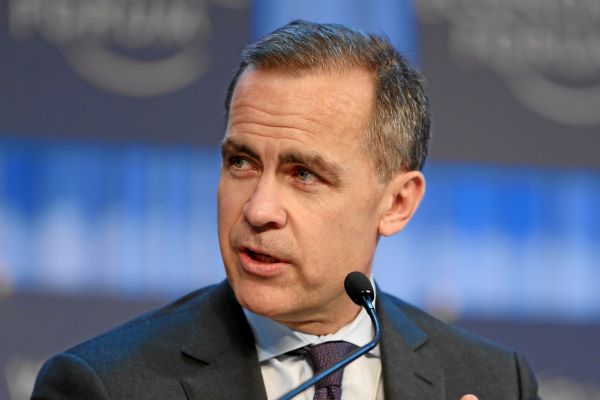.png)

Ranjana Chauhan is a senior financial journalist. She brings sharp focus on the softer aspects of business and enjoys writing on diverse themes, from the gender lens to travel and sports.
March 19, 2025 at 9:39 AM IST
“I’m not the usual suspect when it comes to politics,” said the economist, a former central bank chief, when he debuted in Canada’s politics mid-January. In less than a couple of months, he was picked as the 24th prime minister of the country, which is facing the onslaught of a bitter trade war and open threat of annexation by US President Donald Trump.
Back home, three decades ago, another soft-spoken economist and a former central bank governor and ‘not the usual suspect’ had taken up the challenge to lead India out of its deep economic crisis. The man, described as an “accidental politician”, went on to change the course of India’s economy forever.
Mark Carney’s ascent to the top post in Canada instantly brings memories of India’s Manmohan Singh taking charge. “This is no time for politics as usual,” said Carney. So was India’s economic situation in 1991, when Singh, an economist-technocrat of repute, was brought in as finance minister to salvage India’s balance of payments crisis, high fiscal deficit and spiralling inflation before he became prime minister much later.
As finance minister, Singh steered the country’s economic liberalisation, devalued the currency to boost exports, and brought in sweeping industrial reforms to set the stage for rapid recovery and growth. As prime minister, he consolidated economic progress and tailored the end of India's nuclear isolation that aided strategic cooperation with the US and other major economies.
Both Carney and Singh earned their doctorates in Economics from Oxford University, and were influenced by Keynesian and market-oriented economic theories that shaped their policy approaches. While Singh went on to head the Reserve Bank of India, Carney went a notch higher, and earned a ‘fire-fighter’ badge at the helm of not just the central bank of his country but also of England, the first non-citizen to get the post. In Canada, he led the policy interventions to combat the global financial crises in 2008, while in England, Carney helped manage the Brexit impact.
Singh, who got two straight terms as prime minister in the world’s largest democracy, never won a general election. Canada’s Prime Minister Carney has not faced any election as yet, though he is widely expected to call a general vote soon.
On the personal front, there’s some similarity as well. While Singh’s wife Gurusharan Kaur was a History professor and an author, Carney’s wife Diana Fox is an economist – but what is similar is that both have a family of girls. Singh had three daughters, while Carney has four!
Singh’s personal appeal was his wisdom packaged with spartan simplicity. He came with his signature blue turban and thick glasses, while the appearance of Carney, a Goldman Sachs veteran, caught media’s attention and he was dubbed the ‘George Clooney’ of the central banking world.
The core of the similarities between the two remains the two economists’ apolitical background and central banking expertise that were magnets for getting a job to steer their countries out of an emergency-like situation on the economic and geopolitical fronts.
With Carney at the helm in Canada, the country’s relationship with India could see a turnaround from the strained ties under Justin Trudeau, whose handling of the Khalistan issue led to diplomatic flare-ups. In one of his early speeches after getting the top post, Carney said he looks to diversify trade ties with “like-minded countries”, and that “there are opportunities to rebuild the relationship with India”.
With his rich experience and fresh approach, Carney stands a good chance of mending his country’s vulnerable status to combat bullying by its powerful neighbour, also the biggest trade partner. He also has a good chance to be the face of change in geopolitics and global economy in today’s turbulent times.
The name of Manmohan Singh, who passed away in December, is etched in history as the architect of India's economic turnaround. However, by the end of his second term, he faced numerous allegations, including being labelled a "weak" prime minister. With his trademark humility, all Singh said was: "I honestly believe that history will be kinder to me than the contemporary media or for that matter the Opposition in Parliament...”
On history and the role one assumes, Carney offers a different perspective: “Be humble. However grand you are today or may become tomorrow, you too will be forgotten,” he wrote in his 2021 book ‘Value(s): Building a Better World for All’.




